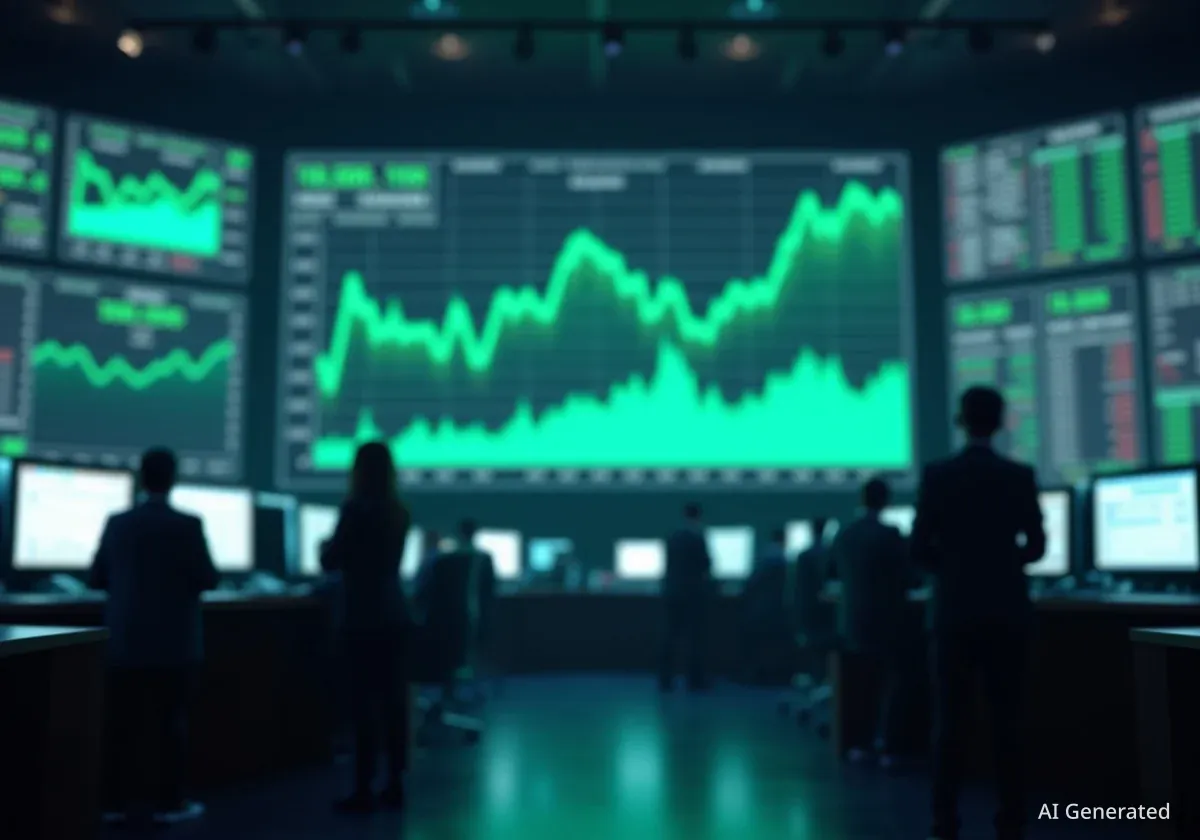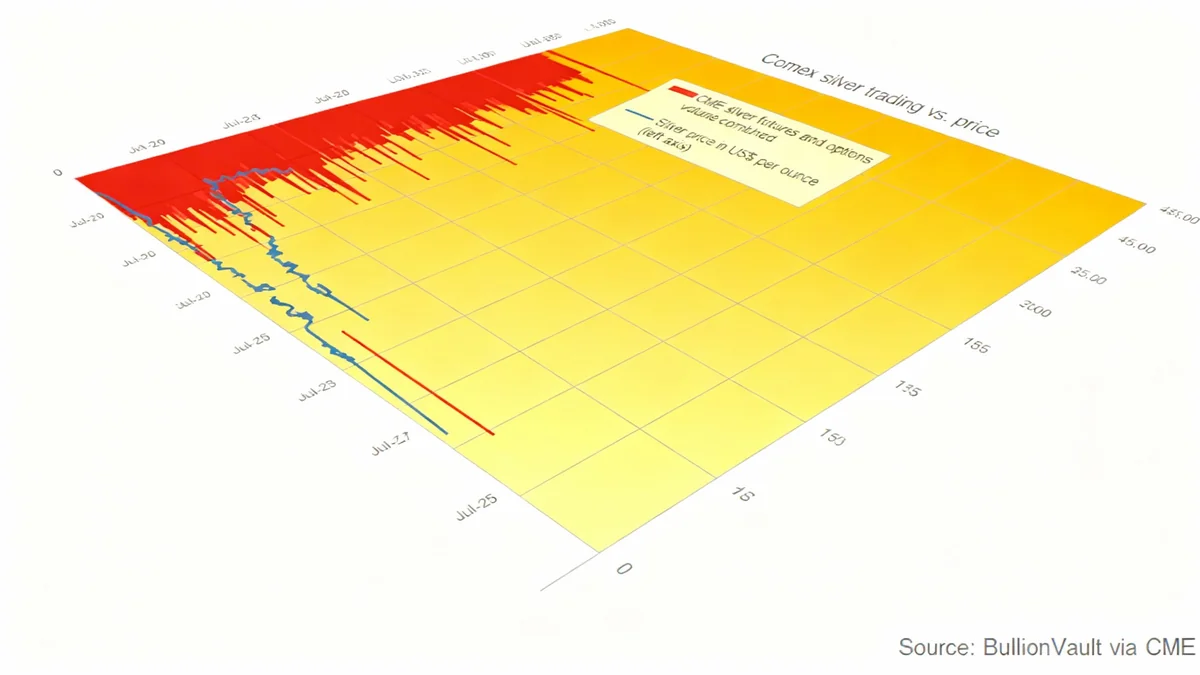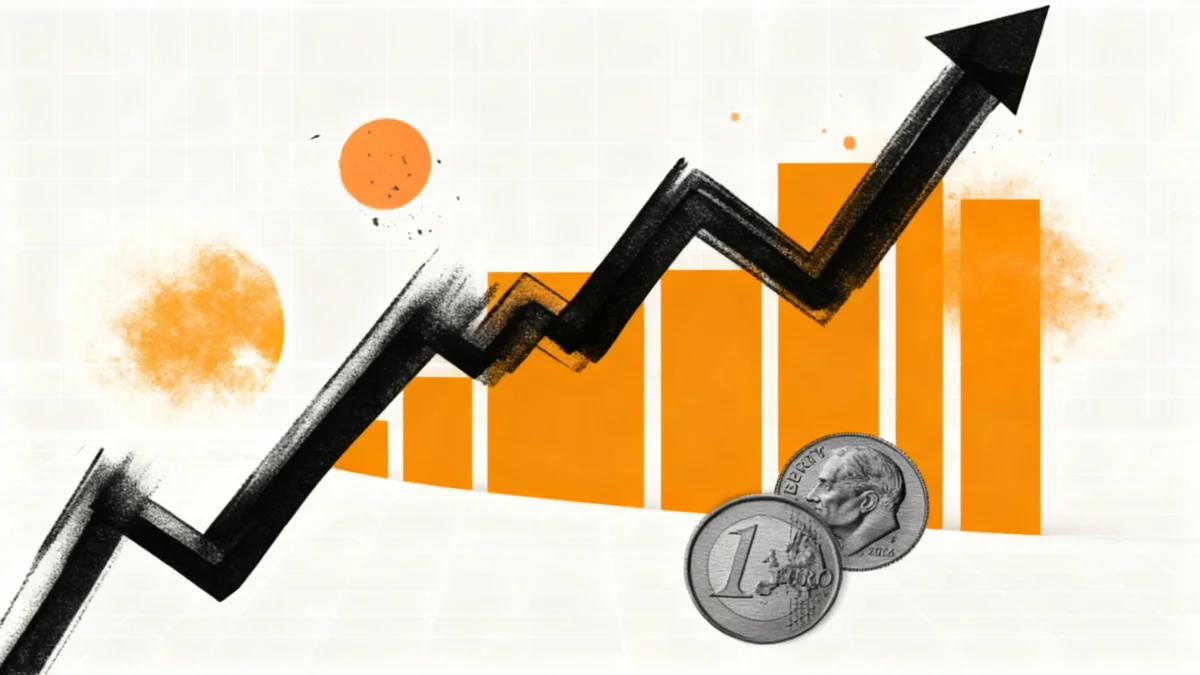Global financial markets began the week with notable volatility, as escalating trade disputes between the United States and China created an environment of caution among investors. While Asian stocks showed initial weakness, Wall Street futures rebounded, suggesting a potential stabilization in investor sentiment. Key economic indicators and upcoming central bank statements are expected to further shape market direction.
Key Takeaways
- Asian markets opened lower due to renewed U.S.-China trade tensions.
- U.S. stock futures gained, indicating a partial recovery in risk appetite.
- Analysts anticipate a temporary resolution to the trade conflict.
- Major bank earnings reports and Federal Reserve commentary are critical this week.
- Geopolitical events, including a Gaza ceasefire meeting, add to market uncertainty.
Trade Tensions Impact Asian Markets
Early trading on Monday saw Asian equity markets under pressure. New statements regarding the U.S.-China trade dispute contributed to investor concerns. Japanese markets were closed for a holiday, which affected trading volumes and liquidity. Despite a holiday, Nikkei futures indicated potential losses for the Japanese index.
Chinese officials defended their restrictions on rare earth element exports. They described these measures as a response to U.S. actions. However, Beijing did not announce new tariffs on U.S. goods. This measured response offered some relief to markets.
"We expect the ultimate resolution will be an extension of the current tariff pause past November 10 along with some new but limited concessions from both sides," stated Jan Hatzius, chief economist at Goldman Sachs. "However, the recent policy moves suggest a wider range of outcomes than was the case ahead of prior U.S.-China talks."
U.S. President's Shifting Tone
U.S. President Donald Trump had previously threatened 100% tariffs on China, effective November 1. Over the weekend, his tone became more conciliatory. He posted messages suggesting a positive outcome and stated the U.S. did not want to 'hurt' China. This shift in rhetoric helped calm some market fears.
Fact: Rare Earth Elements
Rare earth elements are a group of 17 chemical elements vital for many high-tech applications, including consumer electronics, electric vehicles, and military equipment. China is the world's largest producer and exporter of these materials, giving it significant leverage in trade negotiations.
Wall Street Futures Rebound
In contrast to the initial weakness in Asia, Wall Street stock futures showed gains. S&P 500 futures (ES1!) rose by 0.8%, and Nasdaq futures (NQ1!) increased by 1.1%. This indicated a recovery in investor confidence after the initial shock of the trade war news.
The U.S. markets were also closed for a holiday, which led to reduced trading activity. Despite this, the rebound in futures suggested that investors were looking past the immediate trade rhetoric and hoping for a de-escalation of tensions.
Upcoming Earnings Season and Fed Commentary
The third-quarter earnings season is set to begin this week. Several major banks, including JPMorgan (JPM), Goldman Sachs (GS), Wells Fargo (WFC), and Citigroup (C), will report their results. Analysts expect S&P 500 companies to show an 8.8% increase in earnings compared to the previous year, according to LSEG IBES data.
Strong earnings will be necessary to justify the current high valuations in the market. Investors will closely watch these reports for signs of corporate health and future outlooks.
Context: Federal Reserve's Role
The Federal Reserve's monetary policy decisions significantly influence global markets. Investors are currently anticipating potential interest rate cuts. The Fed's guidance on the economic outlook and future rate decisions is a key factor in market sentiment.
Federal Reserve Chair Jerome Powell is scheduled to speak on the economic outlook on Tuesday. This speech will provide crucial guidance on the Fed's future policy direction. Other Fed members and central bankers will also be meeting in Washington this week, adding to the focus on monetary policy.
- Futures markets imply a 98% chance of a quarter-point rate cut by the Fed later this month.
- A similar probability is priced in for another rate cut in December.
European Politics and Currency Stability
Political developments in Europe also contributed to market uncertainty. In France, Prime Minister Sebastien Lecornu announced a new cabinet line-up. Roland Lescure, a close ally of President Emmanuel Macron, was reappointed as finance minister. However, Lecornu faces a difficult task in steering the 2026 budget through a divided parliament, given his previous government lasted only 14 hours.
Currency markets showed some stabilization after a period of volatility. On Friday, there was a rush into safe-haven currencies like the Japanese yen and Swiss franc. On Monday, the dollar edged up 0.4% against the yen to 151.76 (USDJPY). It had fallen 1.2% on Friday from a high of 153.29.
The euro remained flat against the dollar at $1.1609 (EURUSD). The dollar also increased slightly by 0.2% against the Swiss franc to 0.8010 (USDCHF). The overall dollar index (DXY) was marginally firmer at 98.979 after losing 0.6% on Friday.
Commodity Markets Show Recovery
In commodity markets, gold prices saw a modest increase. Gold edged up 0.2% to $4,023 an ounce (GOLD), staying just below last week's record high of $4,057.79. The demand for gold often rises during periods of economic uncertainty, reflecting its status as a safe-haven asset.
Oil prices also regained some ground. Hopes for a trade compromise between the U.S. and China helped boost prices. Brent crude (BRN1!) bounced 1.0% to $63.36 a barrel. U.S. crude (CL1!) rose 1.0% to $59.45 per barrel. A resolution to trade tensions could support global economic growth and, in turn, oil demand.
Bond Market Movement
Cash Treasuries were closed due to the holiday. However, futures for Treasuries (TYc1) slipped 4 ticks as market sentiment improved. Yields had previously reached multi-week lows following President Trump's tariff threat. Investors had also increased their bets on additional rate cuts from the Federal Reserve.
The current market environment remains sensitive to both geopolitical events and economic data. The interplay between trade negotiations, central bank policies, and corporate earnings will likely dictate market movements in the coming days.





